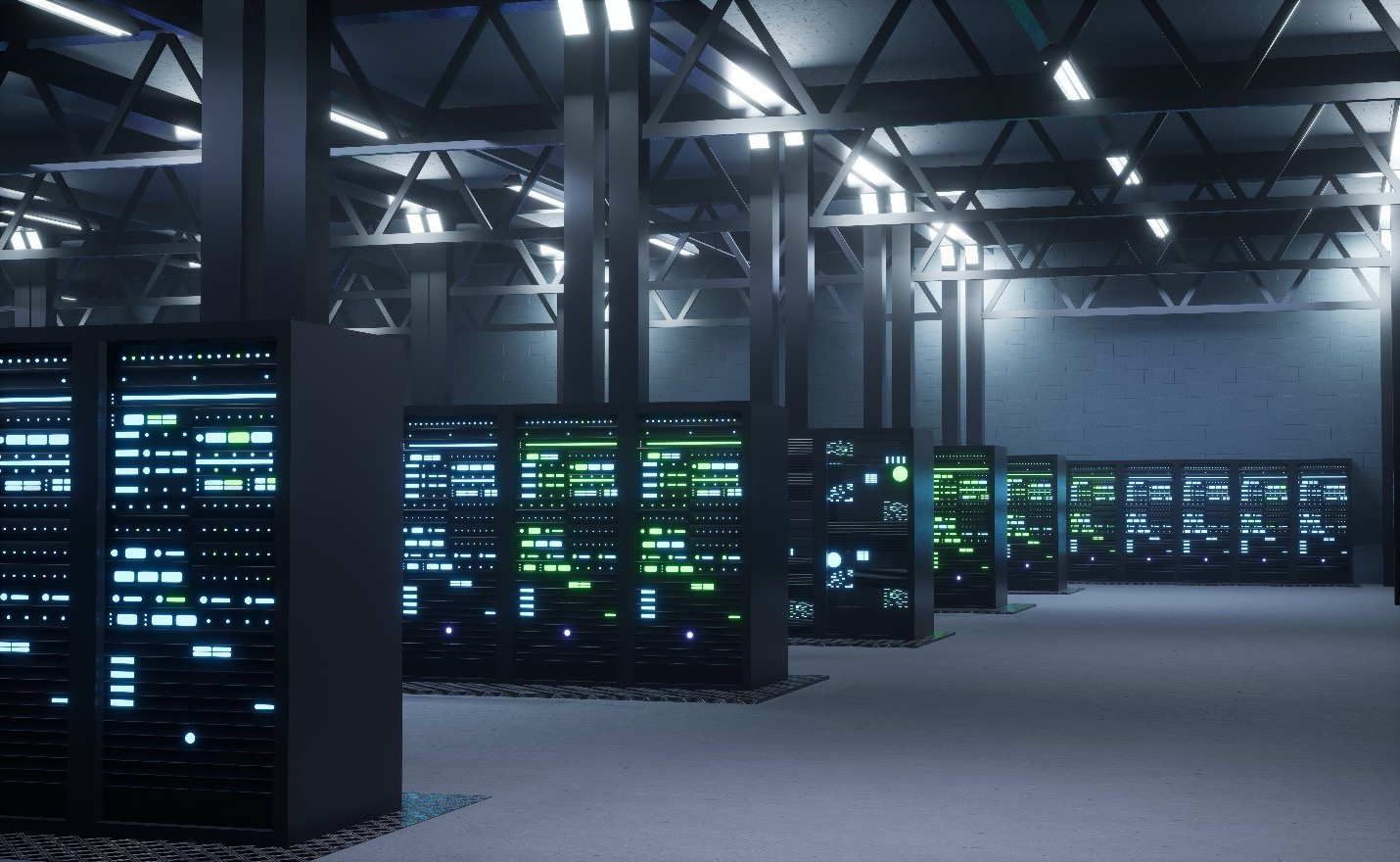Investment in data centers has grown to $197 billion in 2024, making this sector one of the fastest-growing commercial real estate niches.
Data center investors are so drawn to this segment’s steady utility-like cash flow and favorable risk-adjusted returns that in 2021, the sector saw 209 deals worth over $48 billion — about a 40% increase from 2020’s total of $34 billion.
The pace and size of these deals reflect growing confidence in long-term digital infrastructure.
Analysts say that data centers will consume 35 gigawatts of power by 2030 — that’s more than double the 17 GW used in 2022.
Why is there a surge in data center real estate development?
Because businesses and consumers alike are generating and using more data than ever — and all that information needs a secure place to live.
Nonstop demand from AI development, cloud platforms, IoT devices, and data-heavy services like video streaming all combine to strain existing infrastructure and drive the need for new facilities.
It’s no surprise that many CRE investors are now wondering how to invest in data centers.
You’re in the right place if you’re one of them. We’ve put together this guide for first-time investors looking for a practical overview of data center real estate development in the US.
You’ll learn how these facilities work and what to look for when evaluating data center investment opportunities.
What are data centers and why are they a hot investment?
Data centers are physical facilities that store and manage computer servers and networking systems.
Every digital service you use — from online banking to Netflix — runs through infrastructure housed in these buildings.
- Enterprise-owned data centers are built and run by large companies such as banks and telecom firms to meet internal needs. These private facilities are highly customized and give the corporation-owner full control over their IT operations.
- Colocation centers are shared facilities that rent out space, power, cooling systems, and network access to multiple tenants. The center’s operator manages the building while each tenant handles their own hardware.
- Hyperscale centers are designed for efficiency and volume. Cloud providers like Amazon, Microsoft, or Google run these massive campuses to support large-scale computing and storage, as well as intensive AI workloads.
- Edge data centers are smaller centers located closer to end users. They process data locally to reduce lag, which is essential for applications like self-driving cars or real-time analytics.
Understanding the data center investment landscape
If you’re a first-time investor in this space, you need to understand how location affects both risk and return before evaluating any deal.
Some regions have superior infrastructure and connectivity that allows them to consistently outperform others in terms of tenant demand and operational efficiency:
1. Northern Virginia (Ashburn)
It is the US data center market’s undisputed capital. It anchors what’s known as “Data Center Alley,” which has over 25 million square feet of operational space in Loudoun County alone.
The region has become a highly competitive but reliable environment for long-term data center investment with more than 3,500 tech firms in the region and land prices exceeding $2 million per acre.
Market analysts expect a CAGR of around 13% through 2031.
2. Dallas–Fort Worth (DFW)
It is now also a top-tier market especially for colocation and enterprise demand. Its capacity more than doubled from 710 MW in 2020 to roughly 1,650 MW today.
Most new builds are already spoken for — as of 2023, over 94% of the 472 MW under construction was pre-leased, and vacancy rates remain low at just 4.4%.
Major operators are planning mega AI facilities that could require hundreds of megawatts in power.
- Phoenix is one of the fastest-growing data center markets thanks to affordable land, tax breaks, and low-cost energy. Absorption jumped 238% (with around 148 MW leased) in the first half of 2024 alone. Power here costs about 14¢/kWh — roughly one-third below the national average. The city’s low risk of natural disasters also makes it attractive for long-term infrastructure planning.
- Silicon Valley (despite high costs) remains a core data center market because of its unmatched network connectivity. The value of being in San Francisco outweighs the premium for tenants that prioritize speed and proximity to major tech hubs. The area supports roughly 150 data centers, including cloud on-ramps and IXPs.
- Chicago benefits from extensive fiber routes and major peering hubs such as ChIX, AMS-IX, and DE-CIX. Operators like T5 and Edged Energy have expanded here recently.
- Atlanta, Hillsboro, Columbus are emerging markets investing in data centers for CRE specialists interested in investing in data centers. Atlanta’s inventory under construction jumped more than 200% in late 2023 to reach about 733 MW.
Leasing in Hillsboro (Oregon) grew by 120% in early 2024, and Columbus has attracted large-scale investment from tech companies because of its generous tax incentives (though job creation has not yet matched public funding levels).
Pros and cons of investing in data centers
CRE investors are putting money into data center real estate because data centers often come with long-term leases and stable tenants.
These facilities generate consistent cash flow and can be structured to deliver predictable returns. There is strong growth potential, too, as demand is continuing to grow while available space in key markets remains tight.
And since digital services don’t usually slow down in a recession, data centers tend to be more resilient than many other property types. But getting into this space isn’t cheap, especially when you start accounting for infrastructure like backup generators and cooling systems.
There is always a risk of technological obsolescence, so you need to keep investing in upgrades and modernization.
Data centers can also be harder to sell quickly — there are fewer qualified buyers and deals often involve complex technical due diligence. This makes it harder to exit fast if market conditions change.
How to start investing in data centers
While you can buy and operate a facility directly (and many CRE investors do), getting into the data center market doesn’t always require owning a building.
If you are a first-time investor, it might be best to start with lower-risk options to gain exposure and learn the ropes without taking on heavy capital or operational responsibilities.
- Publicly traded REITs are often the easiest entry points for individual investors who want to understand how to invest in AI data centers without committing large amounts of capital. What are the best data centers to invest in? That depends on your goals, but in general, hyperscale and AI-driven REITs attract the most attention. Companies like Equinix and Digital Realty own and operate large data center portfolios and pay dividends. You can buy shares on the stock market and track returns like any other listed asset.
- Fractional ownership platforms allow accredited investors to buy into data center properties alongside other partners. The capital requirements are much smaller than direct ownership so you might not need data center financing. This model is still maturing, but it’s worth watching if you’re actively looking for alternative ways to invest in real estate infrastructure.
- Private equity firms and experienced sponsors pool funds to buy or develop new data centers. Consider joining as a limited partner in one of their deals if you’re interested in exposure without managing the asset.
If you’re planning to pursue direct ownership, work with a broker who understands the data center market — not just general commercial real estate.
They can help you evaluate site-level details that affect power availability and connectivity as well as financial considerations like how much a data center costs and what kind of lease terms tenants expect.
You’ll also need data center financing tailored to this asset class because standard loans don’t always fit the bill.
Conclusion
The most effective way to get started in this CRE segment is to learn the fundamentals and connect with experienced data center financing professionals.
Contact the Private Capital Investors team to learn more about our commercial real estate loans for data infrastructure projects.





